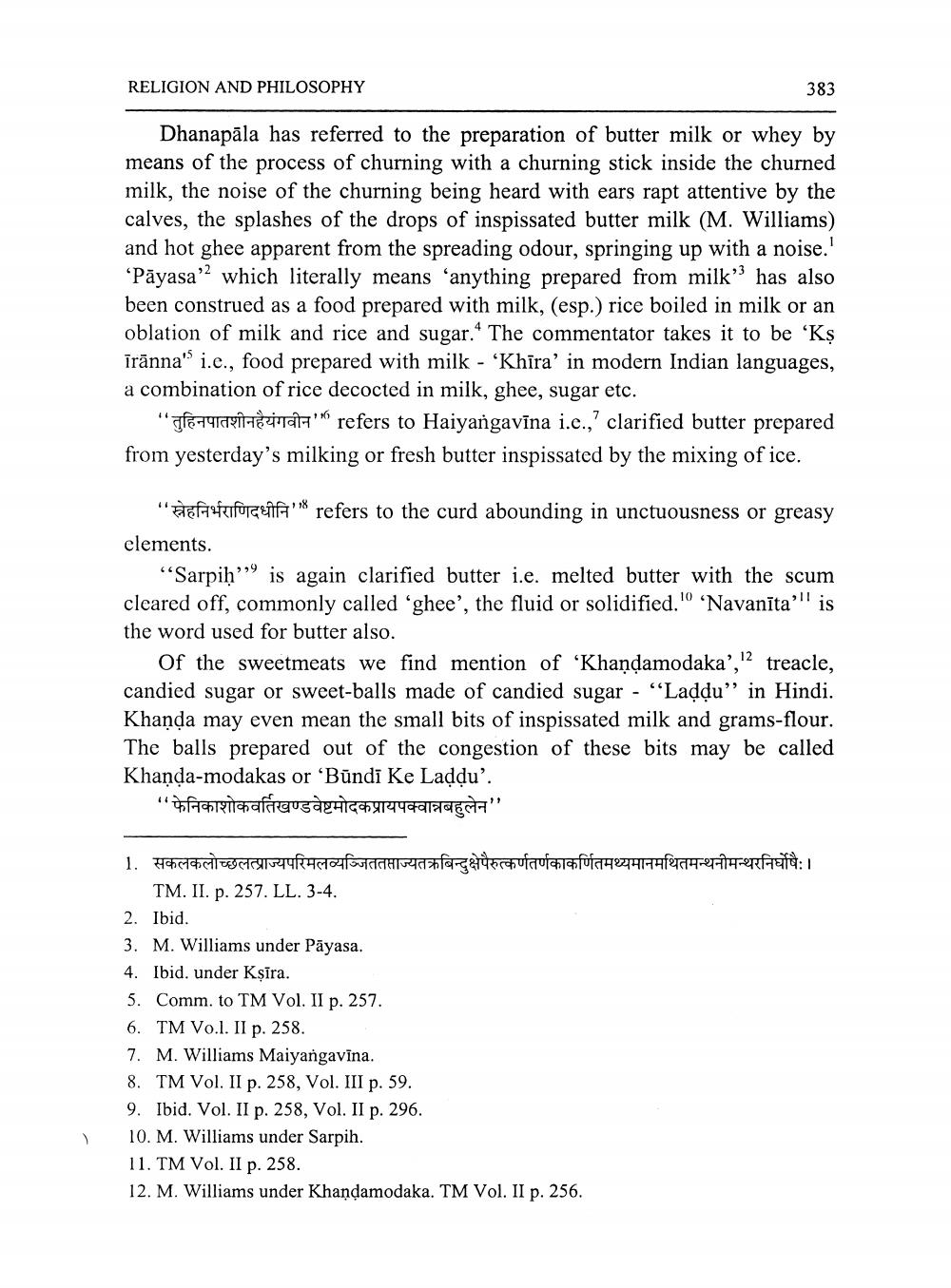________________
RELIGION AND PHILOSOPHY
Dhanapala has referred to the preparation of butter milk or whey by means of the process of churning with a churning stick inside the churned milk, the noise of the churning being heard with ears rapt attentive by the calves, the splashes of the drops of inspissated butter milk (M. Williams) and hot ghee apparent from the spreading odour, springing up with a noise.' 'Payasa" which literally means 'anything prepared from milk" has also been construed as a food prepared with milk, (esp.) rice boiled in milk or an oblation of milk and rice and sugar. The commentator takes it to be 'Kṣ īrānna" i.c., food prepared with milk - 'Khira' in modern Indian languages, a combination of rice decocted in milk, ghee, sugar etc.
""" refers to Haiyangavīna i.c., clarified butter prepared from yesterday's milking or fresh butter inspissated by the mixing of ice.
44
18
" स्नेहनिर्भराणिदधीनि * refers to the curd abounding in unctuousness or greasy elements.
"Sarpih" is again clarified butter i.e. melted butter with the scum cleared off, commonly called 'ghee', the fluid or solidified." "Navanīta'" is the word used for butter also.
383
Of the sweetmeats we find mention of 'Khaṇḍamodaka',12 treacle, candied sugar or sweet-balls made of candied sugar - "Laḍdu" in Hindi. Khanda may even mean the small bits of inspissated milk and grams-flour. The balls prepared out of the congestion of these bits may be called Khanda-modakas or 'Bundi Ke Laddu'.
‘“फेनिकाशोकवर्तिखण्डवेष्टमोदकप्रायपक्वान्नबहुलेन''
2. Ibid.
3. M. Williams under Payasa.
4. Ibid. under Kṣira.
5. Comm. to TM Vol. II p. 257.
6. TM Vo.l. II p. 258.
7. M. Williams Maiyangavīna.
1. सकलकलोच्छलत्प्राज्यपरिमलव्यञ्जिततप्ताज्यतक्रबिन्दुक्षेपैरुत्कर्णतर्णकाकर्णितमथ्यमानमथितमन्थनीमन्थरनिर्घोषैः ।
TM. II. p. 257. LL. 3-4.
8. TM Vol. II p. 258, Vol. III p. 59.
9. Ibid. Vol. II p. 258, Vol. II p. 296.
10. M. Williams under Sarpih.
12
11. TM Vol. II p. 258.
12. M. Williams under Khaṇḍamodaka. TM Vol. II p. 256.




